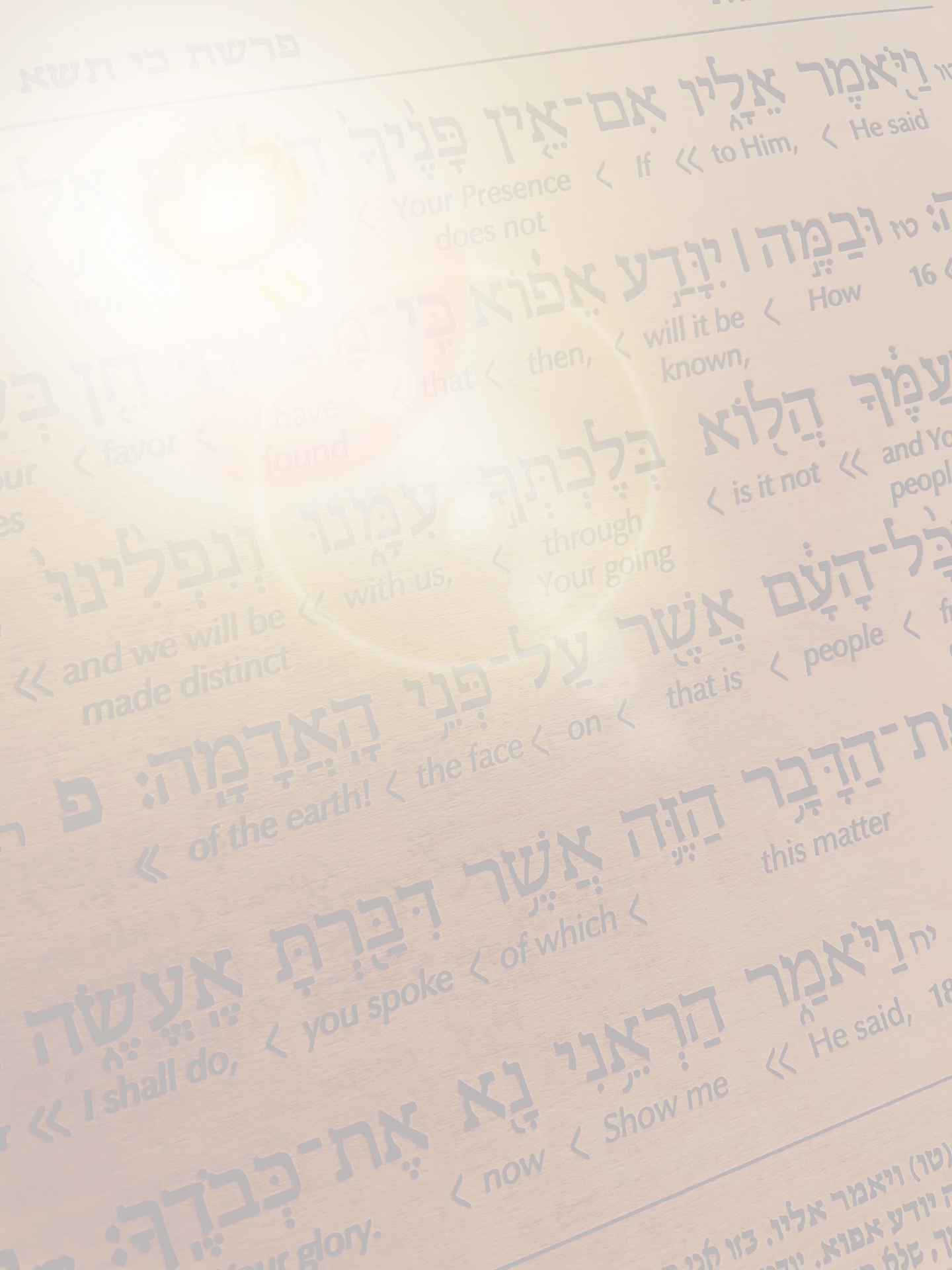

About the Course
CORE COURSE
First Semester
Weeks 1–3: History of the English Language
Topics: The origin and evolution of the English language; symbolic representation of sounds.
Torah Integration: Introduction to the history of Hebrew and its influence on other languages.
Activities: Research project on the connection between the English and Hebrew languages; presentations on the development of language over time.
Weeks 4–8: Grammar, Spelling, Punctuation, and Sentence Structure Review
Topics: Comprehensive review of grammar, spelling, punctuation, and sentence structures.
Torah Integration: Importance of precise language in Torah study (e.g., careful word choices in Chumash and commentaries).
Activities: Grammar exercises, spelling and punctuation tests, sentence structure activities.
Weeks 9–10: Introduction to Literature
Topics: Exploring the elements of literature—plot, character, setting, theme.
Torah Integration: Discussion of narrative elements in Torah stories (e.g., creation, Avraham’s journey).
Activities: Comparative analysis of a Torah narrative and a secular story, highlighting themes and character development.
Weeks 11–12: Overview of English Literature
Topics: Study key moral works from authors such as George Orwell, Arthur Conan Doyle, and Rudyard Kipling.
Torah Integration: Comparative analysis with Jewish storytelling and ethical themes from Torah and Midrash.
Activities: Analytical essay comparing ethical dilemmas in English works and Torah texts.
Weeks 13–14: Short Stories and Torah Parables
Topics: Understanding and analyzing short stories.
Torah Integration: Study of Jewish parables (Mashalim) and ethical lessons from Chazal (Sages).
Activities: Write a reflection connecting themes in selected short stories and Torah parables.
Weeks 15–16: Famous Speeches
Topics: Analysis of famous speeches from morally-driven leaders.
Torah Integration: Exploration of persuasive language in Jewish texts (e.g., Moshe Rabbeinu’s speeches in Devarim).
Activities: Write and deliver a persuasive speech on a moral issue using Torah perspectives.
Week 17: Midterm Exam
Content: Covers material from Weeks 1-16.
Format: Multiple-choice questions, short answer questions, and an essay that integrates Torah insights into the analysis.
Weeks 18–19: Review and End-of-Semester Assignments
Topics: Review key concepts and texts from the semester.
Assignments: Complete end-of-semester reflective essays and presentations on the integration of Torah teachings in literature.
Second Semester
Weeks 20–23: Novel Study
Topics: In-depth analysis of a moral and ethical novel, focusing on themes, character development, and lessons.
Suggested Literature: Jewish-themed novels such as “The Chosen” by Chaim Potok, or “Night” by Elie Wiesel.
Torah Integration: Discussion of Jewish values, ethical dilemmas, and character growth in the novel.
Activities: Write a research project on Jewish authors and their contributions to moral literature.
Weeks 24–27: Drama and Biblical Narratives
Topics: Study of the elements of drama; analysis of a play with strong moral messages.
Torah Integration: Study of dramatic narratives in the Torah (e.g., Yosef and his brothers, the Akeidah).
Activities: Perform a scene from a play and reenact a Torah story, focusing on the moral lessons each conveys.
Weeks 28–31: Persuasive Writing and Speech
Topics: Argumentative essays and persuasive techniques in writing and speech.
Torah Integration: Study of persuasive language used by Nevi’im (Prophets) and Jewish leaders throughout history.
Activities: Write and deliver a persuasive speech on an ethical or moral issue using Torah values as the foundation.
Weeks 32–33: Research Skills and Language
Topics: Research methodology, evaluating sources, and developing strong English vocabulary.
Torah Integration: Researching Jewish perspectives on contemporary issues and exploring Hebrew roots of English words.
Activities: Write a research paper that incorporates both secular and Jewish sources. Vocabulary quizzes, including Hebrew-origin words.
Weeks 34–35: Capstone Project
Topics: Synthesis of the key concepts, literature, and texts studied throughout the year.
Assignments: Develop a comprehensive capstone project that integrates literary analysis, Torah values, and personal reflection. This project should involve a creative and analytical component, such as writing an original story enriched with Jewish themes and moral lessons.
Weeks 36–37: Developing Personal Writing Style
Topics: Analyze favorite poems, writings, and styles to develop a personal writing voice.
Torah Integration: Explore how Torah values and Jewish ethics can shape and influence personal writing style.
Activities: Create original pieces of writing that reflect personal style and incorporate moral lessons from Torah study.
Week 38: Final Exam
Content: Covers material from Weeks 20–37.
Format: Multiple-choice questions, short answer questions, and essay responses that blend literary analysis with Torah values and perspectives.
Literature Recommendations:
“The Chosen” by Chaim Potok – A novel that explores Jewish identity, moral dilemmas, and father-son relationships within a Torah context.
“Night” by Elie Wiesel – A profound, ethical reflection on faith, suffering, and survival during the Holocaust.
“All for the Boss” by Ruchoma Shain – A story of Jewish life, tradition, and the dedication to Torah values in everyday challenges.
Assessment Methods:
Essays and Reflections: Analytical essays that compare secular and Torah-based literature, as well as personal reflections on ethical issues.
Creative Projects: Original storytelling, poetry, and dramatic performances that integrate Jewish values.
Research Projects: Investigating Jewish authors, ethical literature, and the Torah’s influence on storytelling.
Speeches and Presentations: Delivering speeches that focus on moral and ethical topics from a Torah perspective.


